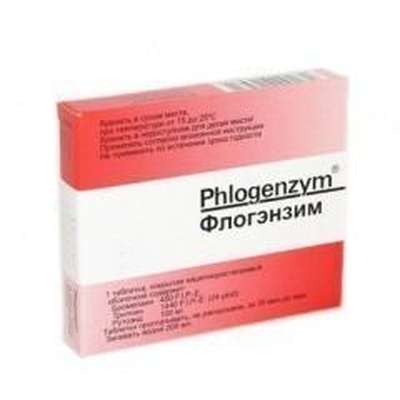Instruction for use: Tamoxifen (Tamoxifenum)
I want this, give me price
Pharmacological group
Estrogens, gestagens; Their homologues and antagonists
Antineoplastic hormonal agents and hormone antagonists
Nosological classification (ICD-10)
C50 Malignant neoplasm of breast
Cancer of the nipple and areola of the breast, Breast carcinoma, The hormone-dependent form of recurrent breast cancer in women in menopause, Hormone-dependent breast cancer, Disseminated breast carcinoma, Disseminated Breast Cancer, Malignant breast cancer, Malignant neoplasm of breast, Contralateral breast cancer, Locally advanced or metastatic breast cancer,Locally-distributed breast cancer, Locally-recurring breast cancer, Metastatic breast carcinoma, Metastasis of breast tumors, Metastatic breast carcinoma, Inoperable breast carcinoma, Incompatible breast cancer, Breast cancer in women with metastases, Breast cancer in men with metastases, Breast Cancer, Breast cancer in men, Mammary cancer, Breast cancer with distant metastases, Breast cancer in postmenopausal women, Breast cancer hormone-dependent, Breast cancer with local metastases, Breast cancer with metastases, Breast cancer with regional metastases,Breast cancer with metastases, Common hormone-dependent forms of breast cancer, Common Breast Cancer, Recurrent Breast Cancer, Recurrence of breast tumors, Breast cancer, Estrogen-dependent breast cancer, Estrogen-Dependent Breast Cancer, Disseminated breast cancer with overexpression of HER2, Tumors of the mammary glands
C54.1 Malignant neoplasm of endometrium
Recurrent inoperable endometrial cancer, Endometrial cancer, Metastatic endometrial carcinoma, Metastatic Endometrial Cancer, Endometrial carcinoma, Recurrent carcinomas of the endometrium, Recurrent endometrial cancer
Code CAS 10540-29-1
Characteristics of the substance Tamoxifen
Antitumor agent (antiestrogen). Tamoxifen citrate is a white, crystalline powder, odorless. Very little soluble in water (1: 5000), easily - in hot (1: 2), soluble in ethanol, methanol, acetone. Hygroscopic at high humidity, sensitive to ultraviolet light. Molecular weight 563.65.
Pharmacology
Pharmacological action - antitumor, antiestrogenic.
Competitively binds to estrogen receptors in target organs, like estrogens, is translocated together with the receptor into the nucleus of the tumor cell and thus blocks the action of estrogens.
Well absorbed from the digestive tract, Tmax - 4-7 h, time to reach Css - 3-4 weeks. Binding to plasma proteins - 99%. Metabolised in the liver by hydroxylation and demethylation. The main metabolite, N-desmethyl-tamoxifen, has an activity similar to that of tamoxifen. Excretion is biphasic with initial T1 / 2 - 7-14 h and subsequent slow terminal T1 / 2 - 7 days. It is excreted mainly through the intestine, mainly in the form of metabolites, a small amount - by the kidneys.
Application of Tamoxifen
Breast cancer: especially in women in menopause, in men after castration, carcinoma in situ of the mammary duct; Adjuvant therapy of breast cancer. Estrogen-sensitive tumors; Endometrial cancer.
Contraindications
Hypersensitivity, pregnancy, breast-feeding.
Restrictions for use
Deep vein thrombosis and thromboembolism of the pulmonary artery in the history of treatment with indirect anticoagulants coumarinic series, thrombocytopenia, leukopenia, hypercalcemia, hyperlipidemia, cataracts or visual impairment.
pregnancy and lactation
Contraindicated in pregnancy (before treatment, pregnancy should be excluded).
Action category for fetus by FDA - D.
For the duration of treatment, breastfeeding should be discontinued (it is not known whether tamoxifen penetrates breast milk).
Side effects
From the nervous system and sensory organs: headache, dizziness, fatigue, depression, confusion, visual impairment, corneal changes, cataracts and retinopathy.
From the cardiovascular system and blood (hematopoiesis, hemostasis): thrombophlebitis, thromboembolism, transient leukopenia, thrombocytopenia.
On the part of the digestive tract (gastrointestinal tract): abdominal pain, nausea, vomiting, loss of appetite, constipation, increased level of hepatic enzymes, severe violations of the liver (cholestasis, hepatitis).
On the part of the genitourinary system: bleeding or discharge from the vagina, amenorrhea or irregular menstruation in men before the menopause, the occurrence of reversible cystic ovarian tumor, fluid retention, itching in the genital area.
Allergic reactions: skin rash.
Other: alopecia, pain in the area of the lesion and / or in the bones, increase in the size of soft tissue formations (accompanied by severe erythema of affected areas and adjacent areas), hypercalcemia, paroxysmal sensation of fever, fever; With prolonged use - cases of changes in the endometrium, including hyperplasia, polyps, intrauterine fibroids and in isolated cases - endometrial cancer.
Interaction
When combined with cytostatics, the risk of thrombosis increases. Estrogens can reduce the therapeutic effect of tamoxifen. Can be used in combination with progestins. Potentiates the effect of anticoagulants of indirect action.
Update of information
Tamoxifen + other drugs (drug)
Tamoxifen is a substrate of the isoenzymes CYP3A (cytochrome P450 isoenzyme), CYP2C9 (cytochrome P450 isoenzyme) and CYP2D6 (cytochrome P450 isoenzyme) cytochrome P450 and P-glycoprotein inhibitor.
In vitro studies have shown that erythromycin, cyclosporine, nifedipine and diltiazem competitively inhibit the formation of N-desmethyl-tamoxifen with inhibition constants (Ki) of 20, 1, 45 and 30 μM, respectively. The clinical significance of this interaction is unknown.
With simultaneous use with letrozole tamoxifen reduces the concentration of letrozole plasma by 37%. Rifampicin, isoenzyme inducer CYP3A4 (cytochrome P450 isoenzyme) cytochrome P450, reduces AUC (area under the concentration-time curve) and Cmax of tamoxifen by 86 and 55%, respectively. Aminoglutethimide reduces plasma concentrations of tamoxifen and N-desmethyl-tamoxifen. Medroxyprogesterone reduces the plasma concentration of N-desmethyl-tamoxifen, but not tamoxifen.
It is shown that with simultaneous therapy with bromocriptine, the level of tamoxifen and N-desmethyl-tamoxifen in the blood increases.
Interaction with anastrozole
In clinical trials, it has been shown that when anastrozole and tamoxifen are used together in patients with breast cancer, the plasma concentration of anastrozole is reduced by 27% compared to when anastrozole is administered alone. However, the combined use does not affect the pharmacokinetics of tamoxifen or N-desmethyl-tamoxifen. Tamoxifen should not be used concomitantly with anastrozole.
Routes of administration
Inside.
Precautions of Tamoxifen
Before the treatment, women should undergo a thorough gynecological examination. Tamoxifen causes ovulation, which increases the risk of pregnancy, so women of reproductive age need to use reliable contraceptive methods (non-hormonal) during treatment and for 3 months after the end of treatment.
The drug should be discontinued when bloody discharge from the vagina or vaginal bleeding occurs, signs of thrombosis of the veins of the lower extremities (pain in the legs or their swelling), thromboembolism of the branches of the pulmonary artery (dyspnea).
In the process of treatment, it is necessary to control blood coagulation indicators, blood patterns (leukocytes, platelets), liver function indices. Before the beginning and periodically during treatment, an ophthalmological examination is recommended.
In patients with bone metastases, the concentration of calcium in serum should be determined periodically during the initial treatment period (in the case of severe hypercalcemia, tamoxifen should be temporarily discontinued). In patients with hyperlipidemia during treatment, it is necessary to control the concentration of cholesterol and TG in serum.
It is not effective in the treatment of patients with metastases (especially in the liver).

 Cart
Cart





